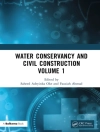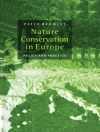Carbon monoxide (CO) is a toxic air pollutant produced largely from vehicle emissions. Breathing CO at high concentrations leads to reduced oxygen transport by hemoglobin, which has health effects that include impaired reaction timing, headaches, lightheadedness, nausea, vomiting, weakness, clouding of consciousness, coma, and, at high enough concentrations and long enough exposure, death. In recognition of those health effects, the U.S. Environmental Protection Agency (EPA), as directed by the Clean Air Act, established the health-based National Ambient Air Quality Standards (NAAQS) for CO in 1971.Most areas that were previously designated as "nonattainment" areas have come into compliance with the NAAQS for CO, but some locations still have difficulty in attaining the CO standards. Those locations tend to have topographical or meteorological characteristics that exacerbate pollution. In view of the challenges posed for some areas to attain compliance with the NAAQS for CO, congress asked the National Research Council to investigate the problem of CO in areas with meteorological and topographical problems. This interim report deals specifically with Fairbanks, Alaska. Fairbanks was chosen as a case study because its meteorological and topographical characteristics make it susceptible to severe winter inversions that trap CO and other pollutants at ground level.
Board on Atmospheric Sciences and Climate & Board on Environmental Studies and Toxicology
Ongoing Challenge of Managing Carbon Monoxide Pollution in Fairbanks, Alaska [PDF ebook]
Interim Report
Ongoing Challenge of Managing Carbon Monoxide Pollution in Fairbanks, Alaska [PDF ebook]
Interim Report
购买此电子书可免费获赠一本!
语言 英语 ● 格式 PDF ● 网页 154 ● ISBN 9780309566179 ● 出版者 National Academies Press ● 发布时间 2002 ● 下载 3 时 ● 货币 EUR ● ID 7147166 ● 复制保护 Adobe DRM
需要具备DRM功能的电子书阅读器












